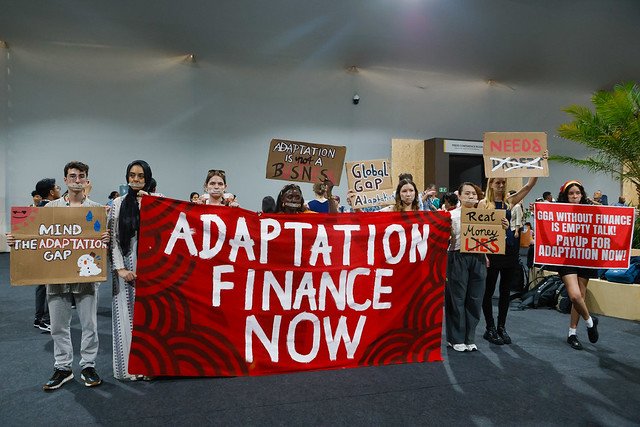
Dhaka, Nov 14, 2025 (EP Desk) - One of the most closely watched events on Day 4 of COP30 was the Climate Finance Reset Dialogue, a high-level forum convened by economists, ministers, UN advisors, and civil-society leaders. The session focused on rethinking the global climate finance system, which many argued is now fundamentally broken and unable to support the transition required for a climate-safe world.
The Current System Is Failing – Key Message from Speakers
Multiple speakers—including representatives from the IMF, V20 (climate-vulnerable economies), African Group of Negotiators, and global civil society—agreed on one point:
The global financial architecture is structurally incapable of delivering climate action at the required scale.
Key problems highlighted:
• Excessive reliance on loans, pushing developing countries into debt traps
• Chronic underdelivery of promised finance (including the $100bn pledge)
• Market-driven mechanisms that serve investors more than communities
• High interest rates for climate-vulnerable countries
• Fragmented climate funds with slow, bureaucratic access

Climate Finance Must Shift “From Billions to Trillions”
Speakers warned that current levels of support—roughly $60–100 billion a year—are far below what is needed.
Revised estimates presented:
• $1.3 trillion/year required for adaptation, loss & damage, and resilience
• $2 trillion/year needed for mitigation and energy transition
• $3 trillion/year total required for developing countries (excluding China) by 2030
A senior African negotiator said: “If finance does not scale by at least 20 times, 1.5°C is mathematically impossible.”
Calls for a New Global Deal on Finance
Several proposals dominated the dialogue:
a) Debt Cancellation for Climate-Vulnerable Nations
Countries like Bangladesh, Pakistan, Kenya, and small island states highlighted the burden of paying more in debt service than they receive in climate finance.
Proposal:
• Cancel or restructure sovereign debt, linking the savings directly to climate investments.
b) Shift from Loans to Grants
The dominant financing model (70% loans, 30% grants) is worsening vulnerability.
Demands:
• Increase grants to at least 50% of climate finance
• Ensure Loss & Damage Fund finance is 100% grant-based
c) Global Climate Taxation Mechanisms
To create stable sources of finance, speakers explored multi-country taxes such as:
• Tax on windfall fossil fuel profits
• Levy on shipping & aviation emissions
• Wealth and luxury carbon taxes
• Financial transaction taxes feeding climate funds
These taxes could generate $500 billion–$1 trillion annually.
d) Reforming Multilateral Development Banks (MDBs)
MDBs like the World Bank and ADB were urged to:
• Increase concessional lending
• Lower interest rates
• Expand guarantees to mobilize private investment
• Triple climate finance portfolios by 2030

Equity & Fair Shares: Climate Finance as a Justice Issue
Civil society groups framed finance as deeply tied to historical responsibility.
Key emphasis:
• Global North countries are responsible for over 70% of historical emissions
• Yet they contribute less than 20–25% of required annual climate finance
A CAN speaker said: “Climate finance is not charity. It is repayment of an ecological debt.”
The panel argued that fair shares must guide the structure of the next-generation finance goal (NCQG), including:
• Bigger contributions from high-income emitters
• Clear tracking of “additionality”
• No double counting
• Prioritizing the most vulnerable
Strong Message for COP30 Negotiators
The dialogue closed with urgent recommendations:
COP30 must deliver:
1. A meaningful New Collective Quantified Goal (NCQG) in the trillions, not billions
2. Grant-based finance for adaptation and loss & damage
3. A roadmap to overhauling global financial structures
4. An end to fossil fuel subsidies, redirecting funds to climate action
5. Direct access mechanisms for local communities
A Pacific Island representative summed up the mood: “If finance does not change, the future does not change. COP30 must reset the system—this is not optional.”



